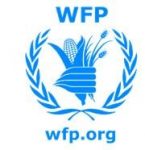
Website United Nations World Food Programme
ABOUT WFP
The United Nations World Food Programme is the world’s largest humanitarian agency fighting hunger worldwide. The mission of WFP is to help the world achieve Zero Hunger in our lifetimes. Every day, WFP works worldwide to ensure that no child goes to bed hungry and that the poorest and most vulnerable, particularly women and children, can access the nutritious food they need.
STANDARD MINIMUM QUALIFICATIONS
Education: University Degree in one or more of the following disciplines: Development Studies, Project Management, Agriculture, Agriculture Economics or equivalent qualifications from a recognized institution.
Language: Fluency in both oral and written communication in one or more UN language preferably English. Fluency in most commonly spoken local languages in the operational districts will be added advantage.
ORGANIZATIONAL CONTEXT
This job is based in Mazabuka Field Offices and at this level, job holders are expected to demonstrate responsibility and initiative to respond independently to various queries with only general guidance. There is a requirement to use judgment in dealing with unforeseen operational problems on a daily basis. Job holders are expected to manage resources and coach and coordinate support staff.
JOB PURPOSE
The World Food Programme (WFP) Zambia is implementing a five- year Country Strategic Plan (CSP), which is a result of rigorous consultations with the government, donors and other stakeholders, and reflects their appetite to support and partner with WFP in the country. The CSP is informed by, and strongly aligns with national and United Nations priorities, and global commitments under the Sustainable Development Goals (SDGs). It embraces the government’s long-term vision 2030; aligns with 16 key strategic areas of its 7th National Development Plan (NDP7); and contributes to the joint Zambia -UN Sustainable Development Partnership Framework (UNSDPF). The CSP is informed by WFP’s long standing and broad experience in the country, embracing lessons from evaluations and reviews which calls for greater synergy, a consolidation of pilot initiatives, and improved gender sensitive approaches to programme design. Finally, it is guided by the Zero hunger Strategic Reviews (ZHSR).
Advancing the WFP Corporate Strategic Plan (2017-2021), the CSP addresses both SDG2 and SDG17 and WFP’s strategic results 1,2,3, and 5. WFP is implementing six activities to achieve four Strategic Outcomes (SO). These SO will: respond to crises and shocks including support to refugees (SO1); address root causes of malnutrition (SO2); build the resilience, enabling environment and market access for smallholder farmers especially women (SO3) and support government institutions to provide social protection systems (including home grown school meals), disaster preparedness and response SO4.
Under strategic outcome 3 and 4 of the CSP, WFP is supporting vulnerable communities especially women and children to build their resilience against climate and socio-economic shocks. In the recent past, Zambia like any other country in Southern Africa has had increased frequent occurrence of climate induced risks such as prolonged dry spells, droughts, flooding and pests (Fall Army Worm), while the longer-term repercussions of COVID-19 on food security remain unknown. WFP will be implementing early recovery initiatives in five (5) selected districts that were adversely impacted by drought during 2019/2020 season to help affected households recover from the devastating effects
KEY ACCOUNTABILITIES (not all-inclusive)
- Facilitate access and training on appropriate climate smart agricultural techniques such as conservation agriculture to smallholder farmers in liaison with the Ministry of Agriculture.
- Support the development of capacity needs assessment tools for identifying, assessing and strengthening climate smart agricultural techniques provided to smallholder farmers.
- In liaison with the relevant government counterparts and NGOs, ensure consistent supply chain of cereals, pulses and vegetables to on-site school meals to feeding to address the nutritional needs of the children.
- Support the design and implementation of a decentralised procurement system in the operational districts in the HGSM programme to ensure success of the initiative.
- At field level in collaboration with NGOs, build the capacity of smallholder farmers to produce, preserve and supply pulses and vegetables to the target schools.
- In collaboration with DEBS, build the capacity of schools to procure, store and provide to learners, quality pulses and vegetables during the project period, in addition to the cereals provided by the government.
- In liaison with relevant government entities, ensure the set-up of low-cost modern farming technologies – hydroponics – in all targeted schools, in order to enhance production of vegetables and other horticultural products.
- Liaise with NGO partners and government stakeholders to foster linkages with the smallholder farmer component, including by mobilizing local farmers in operational areas into groups (including women groups) and facilitating their access to training on production technologies such as hydroponics.
- Any other activity as required.
DESIRED EXPERIENCES FOR ENTRY INTO THE ROLE
- At least 3 years programme experience in comparable and/or relevant position in the public service or private sector or an International Organization.
- Has worked with technical teams (i.e. nutrition, VAM, etc.).
- Has contributed to implementation of programmes.
- Has observed or assisted with policy discussions.
DEADLINE FOR APPLICATIONS
Deadline to receiving applications is 15th June 2020.

